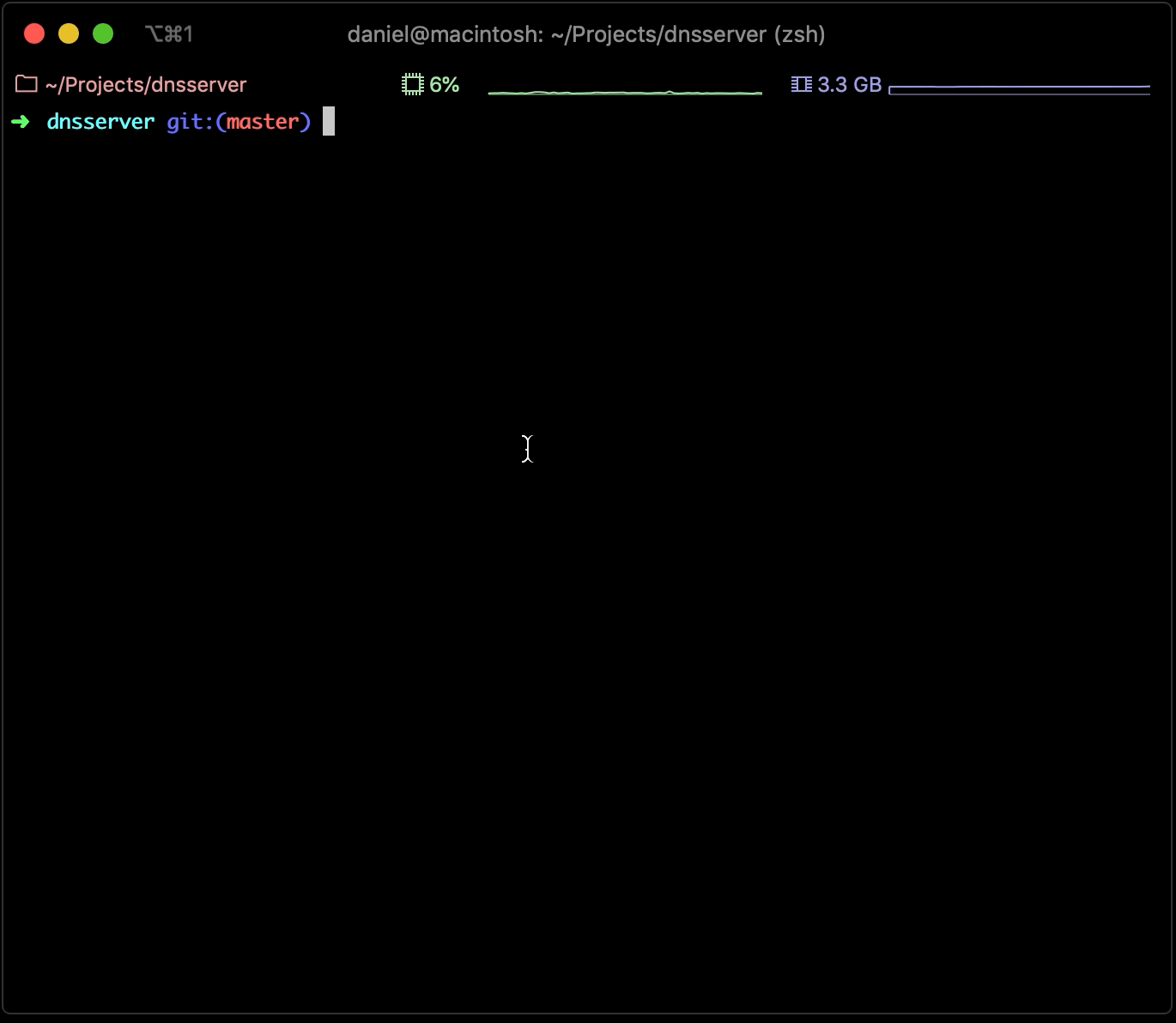Forked from https://github.com/dlorch/dnsserver
The Domain Name System (DNS) consists of multiple elements: Authoritative DNS Servers store and provide DNS record information, Recursive DNS servers (also referred to as caching DNS servers) are the "middlemen" that recursively look up information on behalf of an end-user. See Authoritative vs. Recursive DNS Servers: What's The Difference for an overview.
This project provides a subset of the functionality of an Authoritative DNS Server as a study project. If you need a production-grade DNS Server in Go, have a look at CoreDNS. For DNS library support, see Go DNS or package dnsmessage.
Featured on r/golang and go-nuts.
$ go run . &
Listening at: :1053
$ dig example.com @localhost -p 1053
Received request from [::1]:63282
; <<>> DiG 9.10.6 <<>> example.com @localhost -p 1053
;; global options: +cmd
;; Got answer:
;; ->>HEADER<<- opcode: QUERY, status: NOERROR, id: 17060
;; flags: qr; QUERY: 1, ANSWER: 1, AUTHORITY: 0, ADDITIONAL: 0
;; QUESTION SECTION:
;example.com. IN A
;; ANSWER SECTION:
example.com. 31337 IN A 3.1.3.7
;; Query time: 0 msec
;; SERVER: ::1#1053(::1)
;; WHEN: Mon Jun 17 17:02:43 CEST 2019
;; MSG SIZE rcvd: 56
- Go structs and methods (Structs Instead of Classes - OOP in Go)
- Goroutines (Rob Pike - 'Concurrency Is Not Parallelism')
- Go slices (Go's dynamic lists)
- Efficiently writing to and reading from structs using binary.Read() and binary.Write() respectively
- DNS protocol (RFC 1035: Domain Names - Implementation and Specification)
- Implement more record types (CNAME, MX, TXT, AAAA, ...) according to section 3.2.2. of RFC 1035: Domain Names - Implementation and Specification
- Implement DNS Message Compression according to section 4.1.4. of RFC 1035: Domain Names - Implementation and Specification (thank you knome for pointing this out)
